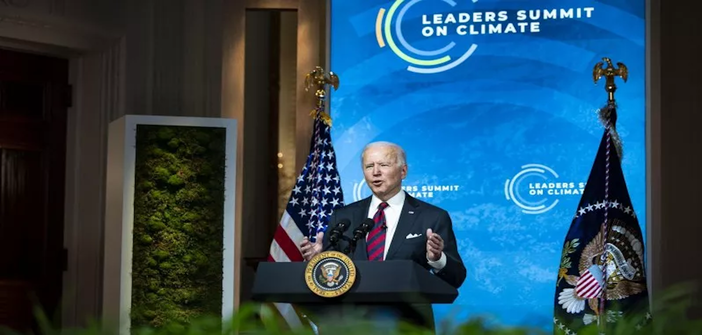Ahead of the international climate summit, the International Energy Agency estimates that global CO2 emissions related to energy will increase by 4.6% this year after a decrease of 5.8% in 2020.
By organizing a global climate summit this Thursday, US President Joe Biden is attempting to take global leadership on this issue, which was neglected by his predecessor. Among the other major powers also vying for this status, the European Union seems well-positioned, particularly following the agreement reached on climate legislation on the eve of the summit.
The summit aimed to propose solutions to limit global warming to 1.5°C by the end of the century, the target set by the Paris Agreement on climate change.
This struggle has become unavoidable as all indicators are currently in the red. The year 2020 ranked among the three hottest years on record, and the very insufficient climate commitments are leading the planet towards a warming of 3°C.
In light of this assessment, Washington made new announcements at the summit, namely the promise to reduce US emissions by at least 50% by 2030, compared to 2005 levels. The US is currently on a trajectory of a -12% reduction in their CO2 emissions by 2030, versus a commitment of -25%…
But the United States is not the only one to engage in the race for green diplomacy.
If China (which currently accounts for 25% of global CO2 emissions, as much as the US and EU combined) warns that it will not reach its CO2 peak before 2030 and has already made it known that it aims to achieve carbon neutrality by 2060, the Kremlin has also positioned itself: Vladimir Putin has set a goal for the cumulative volume of Russia’s net greenhouse gas emissions to fall below that of the European Union over the next 30 years.
In this emerging new world order, the EU is pursuing one objective: to remain the most ambitious continent in terms of climate.
To fight this battle, the EU can rely on several arguments. The first of them: the compromise reached on Wednesday, April 21, concerning the future European climate law and a target to reduce the European Union’s greenhouse gas emissions from 40% up to at least 55% by 2030, compared to 1990.


